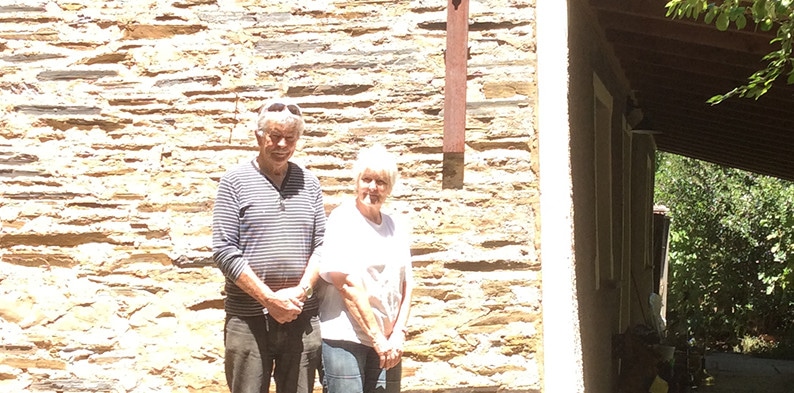Are you planning to move but feel like you’ve missed the chance to do so? Moving to a different place is never too late. As a senior, you just need to take extra precautions.
In this article, we’ll discuss different reasons why seniors would decide to move to a separate area. We’ll help you make your move more manageable. We have created a guide for you from sorting your belongings to what you need to bring on the day of your move.
When Is It Time To Move?
How can you tell when its time to move? When is the right time? You may ask these questions when contemplating moving. We’ve listed down the most common causes why seniors would move out of their homes. If you answered yes to any of the lists below, then you have the answer.
House and Yard Upkeep
You get winded after cleaning a small part of the house. You’re usually spending the better part of the day making the lawn mower work. That’s why you can’t keep up with the weekly trimming of the lawn. The day is never quite enough to do all the work you need to do around the house.
Are these scenarios familiar? If cleaning the house or yard is taking far more time than before, then it might be time to get a new place, a smaller place.
Your valuable time is better off spent doing enjoyable hobbies, not cleaning the day away.
Vacant Rooms
When your kids reach adult age, it will be inevitable for them to move out of the house so they can lead their own lives. This will lead to more rooms getting unused but still needing cleaning. Sure, you can turn their bedrooms into storage or a place where you can do your hobbies. But think about it, in the long run, can you manage to clean all those rooms without extra hands to help?
Waste of Resources
If you’re spending a good part of your retirement on house repairs, a move to a smaller one will solve your dilemma. Even if there’s only two of you in your home, you can still rack up in utilities. So imagine how big you can save by moving. You can save for a trip to a nearby town or invest it in your next hobby.

House Is Too Big
Is body pain a daily occurrence now? Does getting to the end of the hallway take more time than it used to before? If your answer is yes to both questions, then that only means one thing. The house is too big for you. Many people in their senior years are now choosing to live in a smaller home. In it, they don’t need to take the stairs each night to get to their rooms to rest. Nor would they have to hurry down the stairs so they can answer the door or the phone.
Far From Family
Around the time of your retirement, your kids have likely moved to a different city or state. They could be pursuing their careers or starting their own family somewhere far away. You’ve been at this stage before. You understand their need to focus on their own lives and pursue their own dreams.
As expected, this will make their visits to you less and less.
But, you don’t have to settle for less.
Now that you’re not bound by any time and physical restrictions, why not move closer to them instead?
You may have memories of your kids growing up in your home, but reminiscing on your own is not fun at all. Moving closer to your family can boost your spirits, too. You can rely on them to immediately help you in times of need or in case of emergencies.
Too Many Belongings
Do you still have that mirror you bought when you got married? Or the baby clothes of your kid who’s now starting his own family?
If you haven’t been to your basement in a while, you’re likely going to find out you’ve accumulated a lot over the years.
Downsizing your home will force you to downsize the belongings you can bring into it, too.
You have the option of giving them away to family or friends. If they’re not keen on taking them, try a garage sale. You’ll not only earn a few hundred bucks, but you’ll also be able to get rid of things you don’t need anymore.
Prepare For The Move
Now that you have all the motivation to move let us help you prepare for it. Gone are the days when moving takes only a couple of friends and a box of pizza. But, that doesn’t have to mean you can’t have a smooth and comfortable move. Follow our simple steps below, and you won’t have to worry about stressing out over anything.
Ask for Help
Let’s face facts, you’re not getting any younger. Putting away your belongings into piles of boxes will likely take longer than a day. So, the first best way to make moving easy is by asking for help from your family. They can schedule a day or two with you to pack everything. This way, you will be able to save them from worrying about your safety.
Have A Notebook
How do you sort out your belongings in an efficient way? You start with a notebook. It doesn’t need to be new. You can even use a notepad. We’ll explain why you need this in a section below.
Hire Movers
If your family is living in the state or area where you plan to move and can’t help you, consider hiring movers. Save yourself from emotional and mental stress. Think about hiring professional movers, with a packing service, such as Complete Removals. We have 21 years of experience in moving, and we’re proud to say we have the friendliest team of movers in Adelaide. You won’t feel uncomfortable at all with the whole process as our staff will look out for your well-being.
Sort Out Belongings
Remember earlier when we said to keep a notebook near you? This is how you’ll be using it. Go to each room of your home, sit down, and take a look around. Write the room at the top of every page, followed by everything you want packed. Go to the next room and do the same thing. This will make everything neater and more convenient for your family. They’ll be able to go through your list fast without having to run around asking you what needs packing.
It will also save you the headache of tracking down every item in your list once it’s time to unpack them in your new home.
Keep It Short
When sorting out your belongings, remember that this could take a lot of your time. Limit yourself to a limit of 2 hours a day. You may think that’s too short for sorting out items when you can spend at least half a day. If you sort out your belongings for hours on end, this can take a toll to your mental and physical health.
Organise Slowly
To help you start without straining your muscles, organise the smallest rooms first. After that, move on to the larger rooms or the ones with more items in it. Maintain sorting out your things to 2 hours at most per day. To keep things simple, sort them out into two categories: donate or keep. This will help you arrange your stuff in a more relaxed manner.

Get Rid of Items You Don’t Need
If you have some items you want to give away, list them down under donate. Remember that you’re moving to a smaller home. So, you can only bring what you will actually need and use. If you don’t see yourself using an item every day, categorise it under ‘donate’. If you’re thinking of keeping a thing as a ‘just-in-case’, still toss it in the ‘donate’ bin. Chances are, you won’t be using it anyway, and it will only accumulate dust in your home.
By the time your family has to start packing, they’ll know which items to not pack along with your things.
Heirloom Furniture
As you sort your possessions, you’ll come across the ones passed down from generations. You might feel sentimental about these heirlooms from your ancestors. We’re not suggesting you throw them out without a second thought. If you have pieces of furniture you want to keep in the family’s care, call a relative who may want to take them off your hands. You’ll be glad to find out later on how this small gesture has changed your relationship for the better.
Antique and Vintage Items
You may also find vintage items that you forgot you had because you kept them stored in a far corner of the house. If this is something you no longer want to keep, give your local antique shop a call. You’ll be able to relax knowing that they will take care of them. They will even showcase it in their shop, a better option than it accumulating dust in your basement.
Crockery Dinner Set
Let’s be honest. When it comes to porcelain, it is not a matter of what you have but how many you have. You may even have accumulated different brands over the years. We’d also bet you have crockery dinner set aside and used only for special occasions.
Bringing your whole crockery set will defeat the purpose of organising your home. Consider bringing only your favourites. Don’t want to let go of your very first set? Give it to your kids.
This can become your very first family heirloom that your grandchildren will treasure.
Items To Bring To Your New Home
When moving, it is natural to have some things you can’t stand to live for a day without. It could be a shawl you’re very fond of or a sweater gifted to you by your kids from your last birthday.
If you have personal things you’d like to bring with you to your new home, set them aside. Keep them in a box or an overnight bag to make sure they don’t get lost in the moving process.
Movers like Complete Removals will only need you to let them know which items to leave alone and they’ll do it. Our movers understand, more than anyone, how a change of address can be unsettling and will help in every way.
How To Ensure Physical Safety

The most essential part of moving isn’t ensuring you remember to bring all your valuables. Neither is it making sure your things don’t incur damages. The most crucial part of any move is safety. Nothing else should be of top priority.
You may say, “But it has been so long since my last move! What should I do?”
This is why we’ve picked our moving team’s brains and asked them about their experiences in the past. What they’ve noticed and what they always do to keep clients who are in their senior years safe during a move.
Stay Hydrated
Planning a move and sorting out your possessions will keep you always busy and active. This is why you need to keep yourself hydrated all the time throughout the day.
Here’s a good tip: Use an egg timer.
Set the alarm to every ten minutes. Whenever the alarm goes off, drink water, even if it’s only half a glass. Doing so will become a routine that will help you keep up with your tasks. This will help with organising your belongings every day, even if it’s for 2 hours. All that dust can make your throat dry.
Dress Comfortably
Sorting through your things and going from room to room will make you move around a lot. Wearing tight clothes can cause skin rashes and limit your movement. Remember that you will be doing this every day. If you’re not comfortable with your clothing, you may come to dread sorting your items.
Learn Proper Lifting Techniques
In lifting boxes, always follow proper lifting techniques, even if they are light. Lifting is the common cause of most back pains as it strains your muscles when not done right. Remember to bend your knees instead of your back. If the lifting can wait, wait until family or movers arrive so they can help with the task. It’s not worth enduring the back pains or, worse, injury if somebody else can do it for you.
Don’t Lift Heavy Things
Leave the heavy stuff to the professionals. Remember that moving is a step to improve your living condition, not worsen it.
Dispose of Flammable Materials
Keep all flammable materials in one box. Set them aside and have a family member dispose of them for you. Set a reminder not to bring any flammable materials in your new home. Some of your things won’t get unpacked right away. If you leave any combustible material inside, this can cause a fire if mishaps happen.
Keep A First Aid Kit Handy
Have a first aid kit handy so that anyone can grab it when it’s time to move. Even though you’re taking precautions while sorting things, accidents may happen. Having it ready will allow you to avoid scrambling around looking for it if an emergency happens.
Avoid Overpacking
When packing your boxes, you don’t need to fill the boxes up to the brim. There’s a limit to the weight they can carry without disintegrating. Big boxes can only support items under 50 pounds.
Know Where Your Service Animal Is At All Times
Moving to a new place will need proper planning. If you’re bringing your service animal with you, you’ll need to plan for them, too. Add them to your plans and ensure they’re comfortable and safe during your move.
Charge Your Phone At 100%
On the day of your move, make sure your phone’s battery is at 100%. With everything that’s happening on your moving day, it will be easy to forget to charge your phone. Even if you think you won’t need your phone since you have your family to help you, it’s best to do so still. Friends and acquaintances might call you during the day to give you their best wishes on your move. It’s best to be available through your phone during your travel.
Clear The Way
When your family comes over and helps you pack ask them to make sure that the hallway is bright. Your vision may no longer be as crystal clear as before, and your mobility may not be as agile. Also, if they leave boxes in the hall for easier access, make sure it’s not placed in a hazardous location for you. You should also ask your mover for the same thing in advance.
With Complete Removals, you no longer have to make this request. Our movers are so efficient they will know what to do in different situations. You won’t have to worry about bumping into furniture or tripping over boxes.
On Moving Day
On the day of your move, you can relax knowing that your family or movers will be with you every step of the way. You may ask yourself what more you should do. There are only two easy steps you need to do.
Travel With A Family Member or A Friend
Ask a member of your family or a friend to travel with you. Consult with your doctor and ask the best travel arrangement for long trips.
Even with a short journey, it’s best to have someone looking out for you during your move. All those planning and sorting out of belongings can take a toll on you. You may not think it, but once you’re in the car and start to get comfortable, there’s a high chance of you dozing off right away.
Use A Suitcase
We mentioned earlier about setting aside the things you want near you at all times. If a suitcase is too heavy for you, use an overnight bag. Pack the essentials and an extra pair of clothing. Moving to your new home and unpacking your belongings can take more than a day. Packing an overnight bag means you don’t have to look for boxes in the morning for your medication.
You can reach inside your bag anytime and everything you need for the next 48 hours will be available to you.
Settle in Your New Home
Ensuring you’re safe and comfortable in your new environment is a must. Go through every room and check all your utilities and appliances are working fine. You can leave the unpacking to your movers.
Location
Set the exact locations of the nearest establishments on your phone. This will make it easier for you to become familiar with your new surroundings.
These should include the following:
- Hospital
- Grocery Store
- Restaurants
- Shopping Centre
- The shortest route to your family
Setting up the locations for each of these will help you during the process of settling into your new home. You will no longer have to call on your family every time you need to know where an establishment is at.

Assess Your New Home
Arriving at your new home can give an overwhelming feeling of excitement. You’ll be creating new memories here after all. But you shouldn’t sit down and relax yet. You’ll have to check and assess your new home. Don’t worry, this will be very easy. By the time you’ve finished assessing your home, you can finally sit back and relax.
Bathroom
The first thing you should check should be the bathroom. Inspect if it’s flushing well. See if you can turn the knob and open the door without using too much friction. Make sure you can turn the lights on with ease by getting familiar with switches, so you have no problems at night.
Hallway
The ideal width of a corridor is 36 inches, but if you can turn with ease without touching the wall, then that will be fine. If you are using a wheelchair, make sure you can turn around in it without difficulty. The ideal hallway width when in a wheelchair is 60 inches.
Entryway
Your new home should have an entryway without any steps. Think about how you’ll need to be able to enter your home in a wheelchair if it does happen.
Kitchen
You should check your kitchen well. The cupboards, pots, and pans should be easy to reach. The cabinets and drawers should open and close with ease.
New Furniture
Moving to a new place and we’re suggesting new furniture? Now, hear us out. Replace only those furniture with sharp edges as they pose a danger to you and your grandchildren. Chose round corners when you shop around for pieces of furniture. If you want to keep your existing furniture, try looking for rubber corners you can use to cover the sharp edges.
Get To Know The Neighbours
Take the time to socialise with your neighbours. If you’re not too keen around large groups, reach out to a smaller community or the people next-door instead. You can use your hobby or passion as there may be a community in your area dedicated to pursuing it.
This may be something like gardening, cooking, arts, books, or even a knitting or quilt making group. Socialising and making friends in your new area will help you settle in your new home.
Health Care Referrals
Consulting with your doctor before moving is a given. It goes without saying you would have requested for a referral in your new area, too. Try to visit and get acquainted with your new doctor even without any medical need. They may have questions for you or information they need to confirm. In the event of an emergency, you’ll already be familiar with your doctor, and they already know your history.
Cost-Saving Tips
Here are some useful tips so you can save some extra cash during your move.
Set aside old blankets, rugs, and towels you no longer use. They’ll serve as adequate padding for furniture in the moving truck.
Recycle all those old newspapers or magazines you’ve hoarded in the past. Use them as ‘scrunch’ for smaller boxes so you can save money from buying bubble wrap.
Instead of buying new ones, see if your neighbour or nearby grocery store has used boxes they don’t need.
If you plan on spending a night in a hotel, try choosing one that includes free breakfast. You can also try Bed n’ Breakfasts for a comfortable stay.
Ask your moving service if it’s a less expensive option to move during the weekdays over the weekends. There’s no harm in asking, and you get the chance to find out if they offer any special incentives for seniors.
Embrace Your New Home
Know that when it comes to a new environment, it’s actually healthy to feel sad. You may feel like keeping to yourself and refusing to explore your area, and that’s totally normal. The secret is to think of it as a new adventure. Try doing small projects such as decorating a spare room for your hobbies. You’ll need to go out once in a while to look for furniture or materials and supplies. After a while, you won’t notice you’re in a new environment as faces and areas become familiar to you.
Need help planning your move? Give us a call and talk to our friendly removalist experts.







0 comment